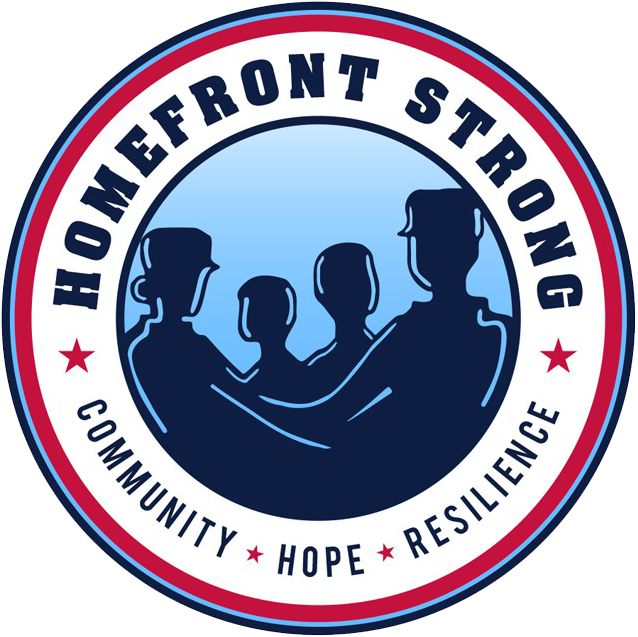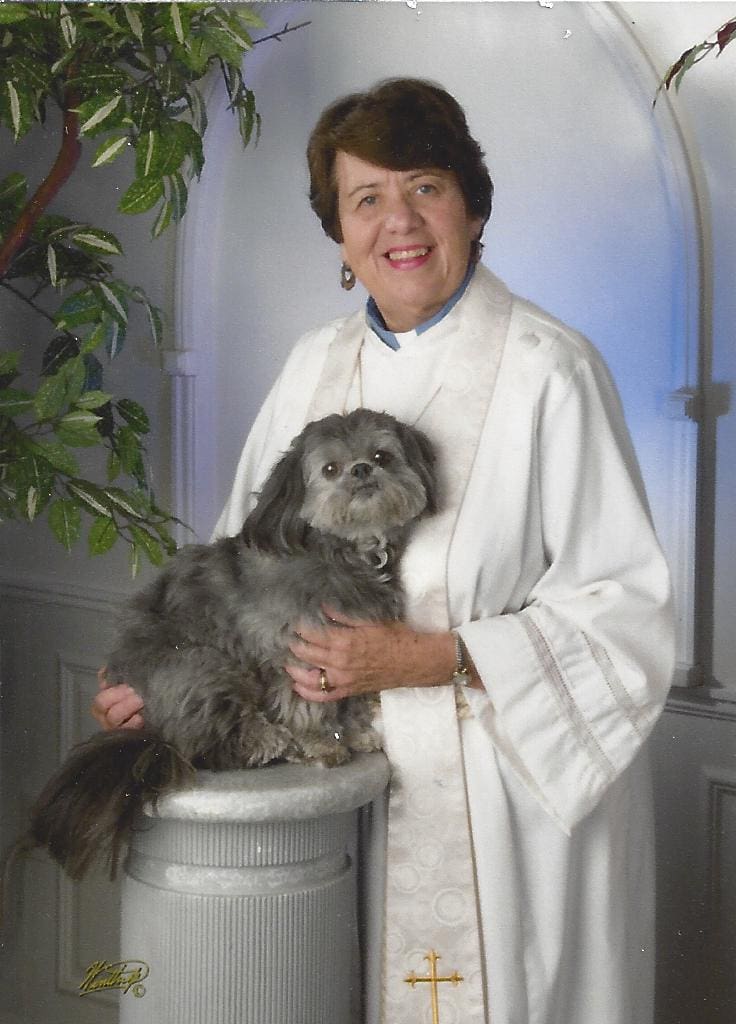Cynthia Crosson-Harrington and her service dog for ministry, Dandi.
An upcoming workshop offered by The Brookfield Institute’s Care for the Troops program will offer introductory training to people who want to help veterans integrate into civilian life.
And there will be dogs.
The workshop is scheduled for 9:30 a.m. to 4 p.m. Wednesday, April 11, at the First Congregational Church, 177 Chestnut Plain Road, Whately. Registration is $15 and includes lunch. For more information, call 978-724-3472 or email [email protected]. Register for the workshop here. Registration closes April 5.
Cynthia Crosson-Harrington, one of the facilitators of the workshop, started the Trauma Assistance Dog Program for NEADS, based in Princeton, Mass. Her background working with trauma victims, plus the loss of her son Jamie, a veteran who committed suicide, gave her more than enough motivation. She is also a minister who has a service dog for ministry and is keen on helping returning veterans make the necessary transitions after serving.
“Originally, NEADS had been placing dogs with physically disabled vets,” Crosson-Harringon explains. She was asked to design a program that would pair dogs with veterans who have suffered trauma — which involves more specialized training. The trauma-trained dogs are still able to turn off lights and pick things up, like the physical-assisting dogs, but they can also help veterans in situations that might cause anxiety or stress, like crowds or even sleeping. “If a veteran has triggers, the dog will put his head on the vet’s knee when he senses anxiety.”
And Crosson-Harrington is convinced a dog would have saved her son’s life. “Dogs can be a deterrent to suicide,” she says. “The veteran stops to think, ‘Who would take care of it? Where would it end up?’”
There are numerous success stories of dogs paired with veterans, one of whom will also be a facilitator at the Got Your Back workshop. Gabe Nutter is a combat veteran with over 250 missions in South Baghdad, a team leader and, now, and educator with the Department of Veterans Services. He has an assistance dog.
Crosson-Harrington’s program began placing dogs with veterans in 2009 and places about eight a year. The dogs are temperament-tested to make sure they’re “unflappable,” she says. They want dogs, for instance, who hear a firecracker and don’t flinch. Then the puppies are trained by prisoners, which is a win-win for both. The prisoners find it very rehabilitative and have done such a good job that the scope of training has increased from basic commands and housebreaking to more advanced skills like turning on lights. When the dog, usually a Labrador retriever, is 14 to 16 months old, it comes back to the NEADS campus for individualized training, specific to the veteran it will be paired with. “If he has a motorcycle, the dog becomes accustomed to motorcycles,” Crosson-Harrington says. “If the veteran is weak on his left side, the dog learns to walk on the right.”
The matching process is thorough, from finding out how much space a veteran has at home to pairing active dogs with active veterans. Then there’s a two-week training for both dog and veteran before they’re sent home. Followups are scheduled for every three months until the final appointment a year later.
Reactions from veterans are incredible, Crosson-Harrington says. Many find new independence, saving a few marriages along the way; veterans who have trouble trusting people learn to trust through the dog; and people in public will often pay attention to the dog, giving the vet needed space.
Learn more about assistance dogs, trauma therapy, “battle mind” and how to help veterans in your community at Got Your Back: Communities Supporting Veterans Returning Home. The workshop is scheduled for 9:30 a.m. to 4 p.m. Wednesday, April 11, at the First Congregational Church, 177 Chestnut Plain Road, Whately. Registration is $15 and includes lunch. For more information, 978-724-3472 or email [email protected]. Register for the workshop by clicking below.

